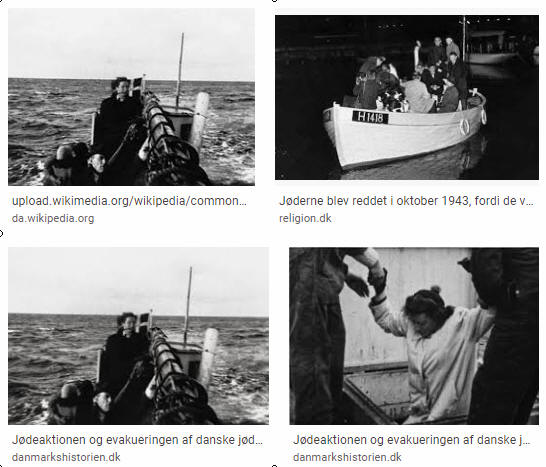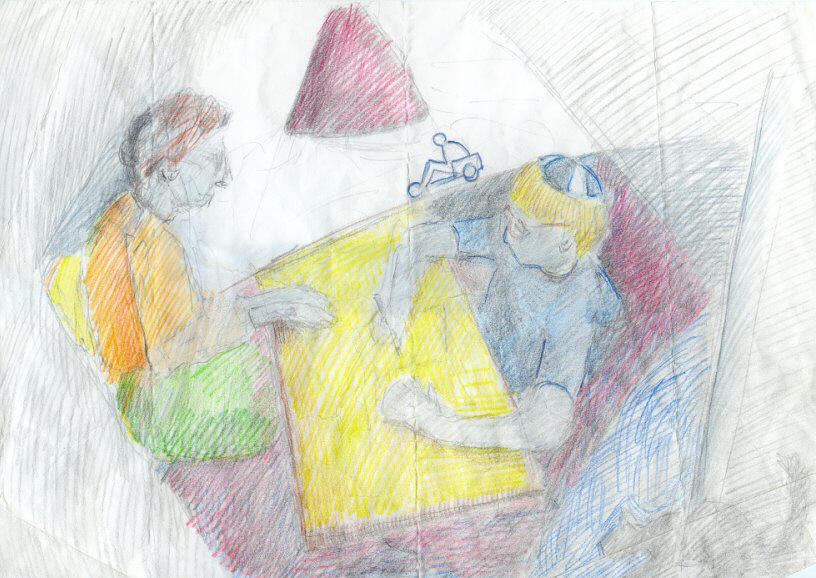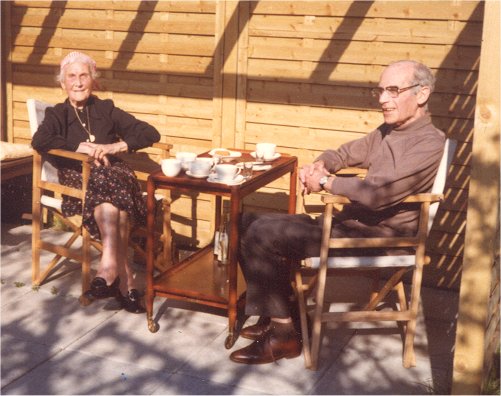To Baltazar from Elias - February 2021
I grew up in Denmark, north of Copenhagen in the years just after Denmark had been under German rule. The Nazis under Hitler’s command wanted to control Denmark, so they could get the meat and other sorts of food for their armies in the Second World War. So my parents and two brothers Julius and Carsten had the Germans in the city, where they lived. The winters were extremely cold.
When I was born in 1946 the Germans had been defeated. The American, the
British and the French armies had defeated the German armies in the West
while the Russians beated them in the Eastern part of Europe. My family
was happy to know, that there would not be another foreign army in Denmark.
They just wanted to look forward and live in peace.
The United States saw, that all the European countries were too much destroyed during the war, so they needed to
build their cities,
roads and bridges anew. And too many families have lost fathers and sons in the war.

General George Marshall made a plan for helping the European countries. The United States told them to make a plan. In that way Denmark was able to buy tractors for the farmers, and construction equipments. As a little boy I watched an excavator from America digging an enormous hole for a new building close to my home. That was exciting for me to look at.

A few years later new houses in another town were built, and my parents
bought one of them. So we moved, and I had to change to another school.
Close to our house I found a pond with funny newts and fish in it. We had a
garden and I had my own little garden in the corner.
I visited a neighboring family. They had no children, but they were very
interesting for me to visit. They were Jews and they had lost their
citizenship in the countries they came from. Denmark offered them a new
citizenship, so they were able to have their own house next to ours. It was
because of the Nazi regime in Germany and the Fascists in Italy that they
were expelled from their homes. So they had to be refugees. They were lucky
to be allowed to stay in Denmark because the husband had a job in an
international company controlling shipload. His wife was a teacher in
languages. They were both nice people to talk with, and they loved to be in
contact with my family.
When we moved to this district I was 7 years old, and of course I didn’t
understand the problems my neighbors have had. But I understood that this
couple was so much different from all the other neighbors. Little by little
I got more details about their life as refugees.
During the German occupation of Denmark the Danish Jews were protected by
the Danish authorities. But Jews trying to escape from Germany were not
allowed entrance to Denmark. The war in Europe was more and more cruel. The
Germans invaded Czechoslovakia, Poland, France, Belgium and Holland. They
occupied Denmark and Norway and at last they went to war with the Russians.
During the war the Nazi regime began to round up the Jews in all the
countries. The Jews were sent to concentration camps and to extermination
camps where they were murdered. The Nazis just hated the Jews.
The Nazi ideology was racist and anti-Semitic. The Nazis wanted to make a huge state with Adolph Hitler as “der Führer” which means a German dictator. The Germans should be the dominating people in the new Empire. They called it The Third Empire.
Hitler got more and more irritated, because the Danish resistance movement was able to blow up Danish factories who collaborated with the Germans. The Danish government refused to execute Danish resistance fighters and stepped back. So from August 1943 until May 1945 Denmark was without a government. Adolph Hitler ordered that the Danish Jews should be rounded up and sent to a concentration camp. The action against the Jews was planned to be in October 1943. A ship waited to be loaded with 6000 prisoners in the harbor in Copenhagen.
In a few days it happened that a lot of Danish people, some of them from the resistance movement, but also private persons, got engaged in the rescue of the Jews. So Hitler’s order to catch the Jews was prevented. A little less than 500 Jews were caught and deported to the German concentration camp Theresienstadt.
How could it happen that the Danish people managed to
rescue so many people? Almost 6000 Jews were in the night sent by
fishing-boats and rowing- boats across Øresund to Sweden. It was fantastic.
Only one other European country had succeded to do the like.

My neighbors Mr. and Mrs. Weltsch, were rescued in October. They came to the Swedish Capital, Stockholm, and lived there until the end of the war in May 1945. They were lucky, but they had one severe sorrow: his mother in Vienna was taken by the Nazis and sent to Theresienstadt, where she died. But Mr. Weltsch had no idea where she died until after the war was over.
All that I have told you now took time for me to realize. It was not nice for Weltsch to tell what had happened for them during the long time they had been refugees. So they did not tell me directly. But being together with them I realized, what had happened. In a way I brought comfort to them. The Weltsch family regarded me as their son.
The surviving Jews in Europe searched for their lost family members– all of them had family members who had disappeared or were murdered in the camps. The rest of the Jews went to Palestine in order to make a new life for themselves and to fight for the new state, Israel.
My neighbors wanted to stay in Denmark. I visited them
almost every day. Through this friendship I got an idea about the world
outside Denmark. They were speaking Danish and Swedish, German and Italian,
French and Mrs. Weltsch taught me Latin as you can see on this drawing,
which I made many years later. The go-cart symbolizes that I was not that a
hard-working school-boy.

Weltsch had a special cabinet in wood with a radio, a gramophone and closet for all the records. No other families on the road had such a fine thing. Dvorak came out of this cabinet most mysteriously. Later on I was impressed very strongly by the music of Bela Bartók. Fritz gave me a recording with Bartok's Concert for Orchestra. Bartok had a parallel experience with that of Weltsch' during the war. His exile was bitter, but he was able to compose his big opus The Concert for Orchestra in September and October 1943 and complete it in the days when the Danish Jews were brought in safely to the Swedish harbors. Bartok's opus was performed in New York on 1. December 1944. Bartok died 1945.

Mr. Weltsch together with a friend of his
family.
Weltsch were Jews, but they were not religious. Their Jewishness had to do with the way they were thinking about life. They had no children. But I was there for them for some years.
A student of History of course I studied German history and the history of the Jewish Nation and later in my life I have taught my students the story.
I was concerned about what I have learned from them. Soon after I decided to be a Jew by choise, and many years later I converted to Judaism.
14. Februar 2021